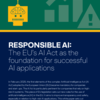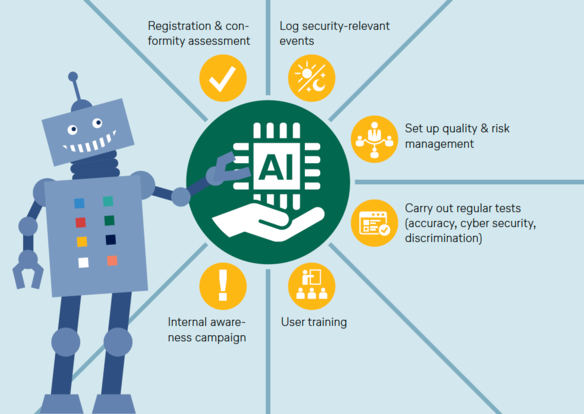In February 2025, the first elements of the complex Artificial Intelligence Act (AI Act) adopted by the European Union (EU) became mandatory for companies and start-ups. Our whitepaper outlines the changes affecting your business and highlights the opportunities this legislation creates for you.
Read the “Responsible AI” whitepaper to learn about the risk classes used to categorize AI systems and the resulting requirements faced by companies. Find out more about the kinds of opportunities that the AI Act could bring for your business.
The AI Act supports responsible innovation
The EU AI Act is intended to make the use of artificial intelligence more transparent and more secure – particularly in relation to high-risk systems. It provides legal certainty, encourages standardization, and supplements existing legislation, such as the GDPR and the Product Liability Directive. For companies, this translates to clear requirements, reduced legal risk, and easier compliance. Those who take action early will be able to bring legally compliant AI solutions to market faster – a competitive advantage that will strengthen customer trust.
Responsible AI in practice: navigating innovation pressure and uncertainty
ChatGPT has significantly increased acceptance of AI, thereby also intensifying the pressure to innovate. Many companies are looking to improve their products through AI and gain a competitive edge. However, uncertainty surrounding the regulations often makes them hesitant. The AI Act provides clarity in this regard – creating a strong foundation for trust and, ultimately, sustainable competitive advantages.
- What risk classes are used to categorize AI systems?
- What factors must be taken into account for the future use of AI?
- What is the most straightforward way to comply with the regulations?
- What opportunities does the EU AI Act create for your company?


